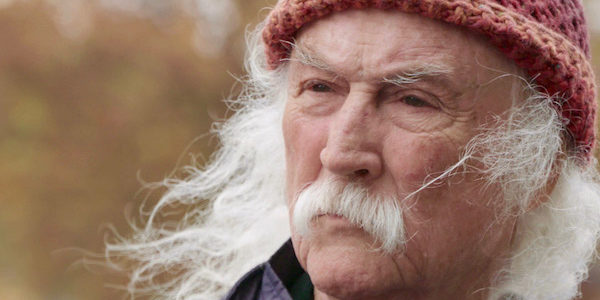
ReelBob: ‘David Crosby: Remember My Name’ ★★★½
By Bob Bloom
As a singer-songwriter-musician, David Crosby is a living legend. As a person, he is a shit.
That is not my opinion, but his own assessment as he talks about his life and career in the new documentary, “David Crosby: Remember My Name.”
The movie features a reminiscing Crosby, as he revisits many of old haunts, interspersed with home movies, concert footage and interviews — recent and archival — with musicians who worked and performed with Crosby over the last 50-plus years, including Jackson Browne, The Byrds’ frontman Roger McGuinn, and Graham Nash and Neil Young of Crosby Stills & Nash and Crosby, Stills, Nash & Young.
From everyone who talks about Crosby — including himself — you realize that he has a masochistic streak and is his own worst enemy.
Throughout the movie Crosby describes himself as a person with “big ego, no brains,” “a wacko” and “difficult.” He also has been called insufferable and self-destructive.
Crosby is frank about his addiction to heroin and cocaine and the women who became addicted in his company. He makes no excuses for his behavior, which is refreshing.
He shares his regrets about the men and women he treated badly and hurt throughout his life.
Strangely, while you may not regard Crosby as a decent person, you respect his candor and are touched by his vulnerability as he opens up to filmmaker Cameron Crowe, who produced the movie.
Crosby has a rock ‘n’ roll face. You can see the ravages of the drugs and the miles, have done to his face and body. You wonder, after all the abuse he has inflicted on himself, how he can still be alive at 78 — let alone performing.
Yet, his singing voice remains as sweet and clear as it did in the early 1960s, when he broke onto the scene at 23 as a member of The Byrds.
The movie, directed by A.J. Eaton, always returns to Crosby’s love and devotion to music. It is what keeps him going and helped him overcome the many adversities and challenges he faced.
Crosby does not flinch at answering many of Crowe’s probing questions. He is brutally honest and reflective, admitting and regretting his missteps. Now, in his late 70s, Crosby continues to compose songs — several of which are autobiographical.
The documentary is not a flattering portrait of an artist. Eaton and Crowe’s warts-and-all approach makes Crosby more accessible and human.
Fans often forget that their rock gods are mortal, dealing with and suffering from the same foibles as the rest of us.
Crosby’s true confessions sprinkled throughout “Remember My Name” proves he is as human as the rest of us. And it’s a comforting feeling, knowing that wealth and fame cannot obscure a host of sins.
Most of all, though, “Remember My Name” serves as a showcase for Crosby’s remarkable talent, which neither a hedonistic early life, drugs or age can diminish or conquer.
“David Crosby: Remember My Name” is a testament not so much to perseverance, but to the healing and redemptive power of music.
I am a founding member of the Indiana Film Journalists Association. My reviews appear at ReelBob (reelbob.com) and Rottentomatoes (www.rottentomatoes.com). I also review Blu-rays and DVDs. I can be reached by email at bobbloomjc@gmail.com or on Twitter @ReelBobBloom. Links to my reviews can be found on Facebook, Twitter and LinkedIn.
DAVID CROSBY: REMEMBER MY NAME
3½ stars out of 4
(R), language, nudity, drug use
